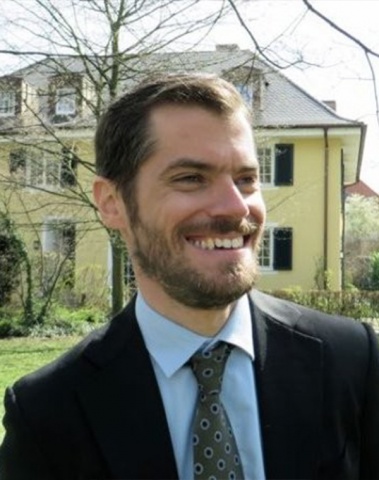
Chris Reinstadtler
Policy topics: Analytic Methods, International Development, Security & Diplomacy
Social Media links: https://www.linkedin.com/in/christopher-reinstadtler-a33a031/
First job out of Ford School: Strategic Analyst at Corporate Executive Board
“The U.S. has been involved in different countries trying to support their partner nations' militaries and security forces for a long time, particularly after September 11th,” says Chris Reinstadtler (MPP ‘04). In 2017, Congress established the National Defense Authorization Act to improve results of those efforts, in part by requiring the Department of Defense to provide more extensive funding accountability. As program manager at Vysnova Partners, Reinstadtler provides intensive assessment, monitoring, and evaluation procedures to keep federal funding accountable in fragile states and ensure they do not become failed states.
His team is focused on “trying to figure out if security cooperation efforts are worth investing in.” He started by assessing the DOD’s work, and creating methodologies to measure in-country success based on past actions. “We're a part of an effort to go back and untangle what happened and make an assessment for moving forward,” he explains, asking key questions, such as “when the security cooperation effort is done, did it work, did it not work? And what implications does that have for strategic priorities now?”
Reinstadtler identified room for improvement. “The military needs to get better at articulating what they want to do and how they will know they achieved it. They have ways of thinking about this in battle but they do not always translate to managing security relationships over long time periods,” Reinstadtler said. When tasked with assessing the Department of Defense’s work, Reinstadtler discovered there was not sufficient methodology in place with which to measure. His task now is to make sense of past actions.
Previously a field program officer with USAID and analyst at the Clinton Foundation, Reinstadtler points to skills learned at the Ford School that have contributed to his success, “I always use the analytic thinking skills that were emphasized at the Ford school–all the way up to now,” he said. Reinstadtler said the Ford School gave him the foundations of methodology that helped him be an attractive applicant for these types of monitoring and evaluation jobs. “The reputation of the Ford School as more quantitative than some other public policy programs has always been useful in this job,” he said. He’s been able to tell employers ‘I know enough about methodology design to be competitive for a job that not every public policy or public administration graduate would be really qualified for,’ he said. That alone has set him apart and propelled him into new roles.
Sadly, Chris passed away in August 2020. We share with you his career impact, cut short too soon, as an inspiration. Chris is remembered fondly here by our faculty and staff who knew him during his time at the Ford School. His obituary may be seen here.